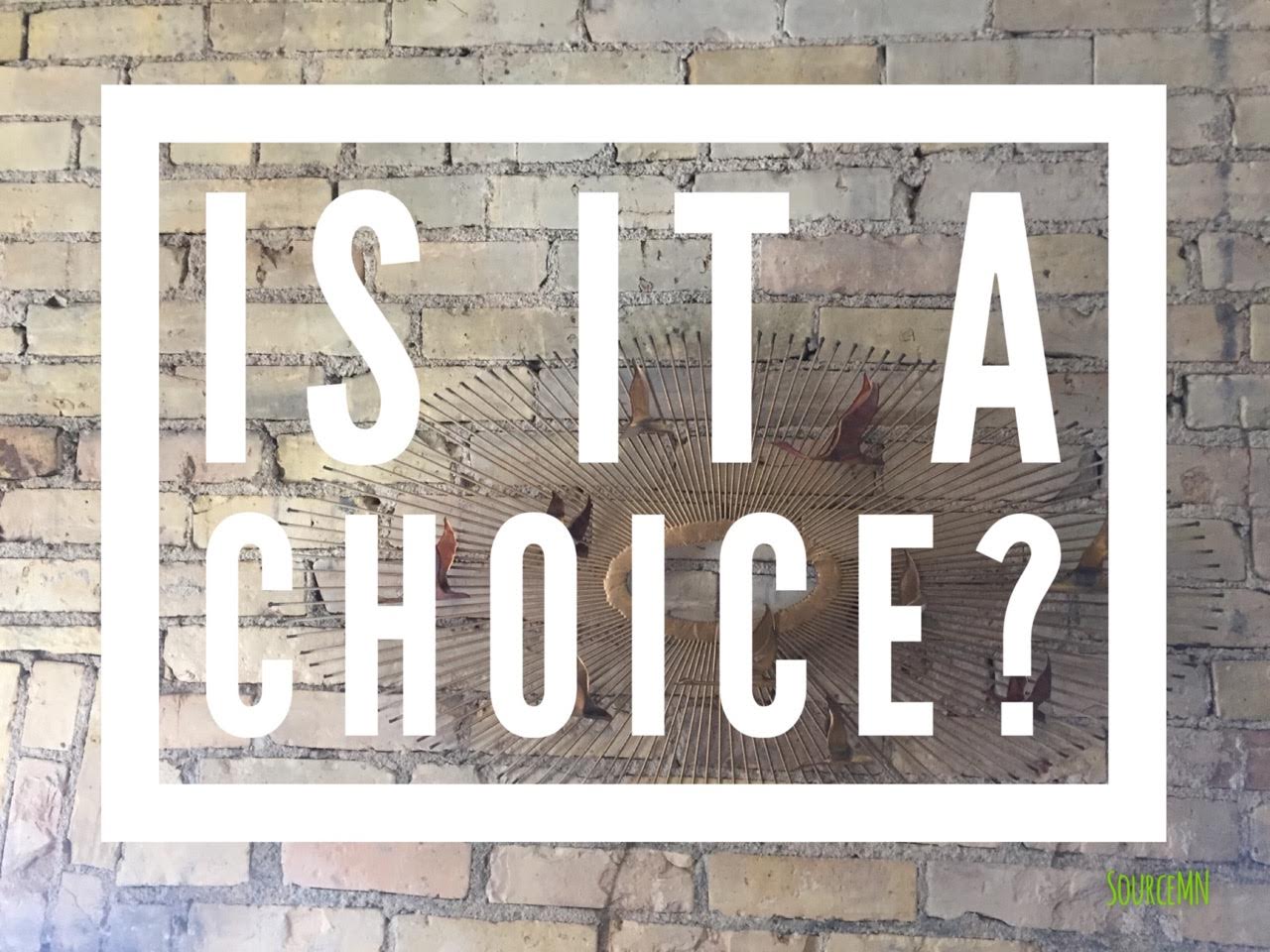
Is It a Choice?
by Maja Neumann / Source anti-trafficking volunteer
(The opinions in this piece are a reflection of one persons work in the anti trafficking movement here at Source. As an organization we want to keep the conversation open and are thankful for those who have created pieces of interest like this and are involved in our work)
I have learned over the past few years that most things in life are not simply black or white but rather a shade of grey. Nowhere is this more true than working with women who are in the life. Recently MPR published a story interviewing a woman who was in the life. While the point of this article was that sex work should be decriminalized in order to make it safe (a point I highly agree with), it had another message as well. The message that the woman wanted heard was that she was making a choice with her body and that she is in no way an “unknowing victim”.
For those of us who have been fighting to end human trafficking, this is not a new argument, but it can be a frustrating one. Is it a choice? Are all women who sell or have their bodies sold for sex victims? It’s not a black and white answer. To answer this question though, let’s start with a fact. Between 66-90% of women in the sex industry (that includes exotic dancers) were sexually abused as children. 2 So, if we take this fact from the lower end, we’re saying that 2/3rds of women in the sex industry were sexually abused as children. This fact, I believe, changes a lot of the story.
We are shaped by our early years. My early years were spent in a two-parent loving home, but with a father with a serious medical condition. What was the result of that? It shaped me, today I am nurse who feels that my life calling is to care for others. What if I had been sexually abused by that same father though? Or an uncle? Or a boyfriend of my mother? That would have shaped me as well. I would have carried that with me and it would have an impact on the decisions I made as an adult.
Read this quote from the article I had talked about early.
“I think that’s a lot of people projecting their moral standpoint onto what we do, and I think that’s wrong,” she said. “There are certainly people who are forced into it by other people or by circumstances, but I don’t think that means those people deserve to be any less safe than workers in other industries.” 1
I would like to respond to this woman because I think she does speak some truth. I am not projecting my moral standard upon her. I do believe that horrendous circumstances are what drive women into the life including homelessness, substance addiction, and even parental influence. And I agree that these women should be just as safe as other women. However, I would like her to also see that perhaps her choices in life have been shaped by her past, by choices that were not hers and that if she had grown up in a different circumstance that perhaps there would have been a different outcome.
Most women in the life will never be rescued. Not all of them are being held by captors in poor conditions or being beaten by a pimp daily. However, they are kept in the life by choices that were made for them. But the only thing that will allow them to leave, is their own choice. This is what I want to give the women I interact with, choice. I cannot make it for them, they need to choose it for themselves, but if I can offer another way, a path where their bodies are not a commodity, I will do that.
For more information about our Purple Light Project and the work that Source does in anti-trafficking please visit the anti-trafficking tab on this website.
1 Weber, T., Nelson, C., & Erickson, J. (2017). How criminalizing sex work can make people unsafe. Mprnews.org. Retrieved 4 January 2018, from http://www.mprnews.org/story/2017/10/31/sex-worker-interview-law-safety
2 Anklesaria, A., & Gentile, J. (2012). Psychotherapy with women who have worked in the “sex industry”. Innovations in Clinical Neuroscience, 9(10), 27-33.
